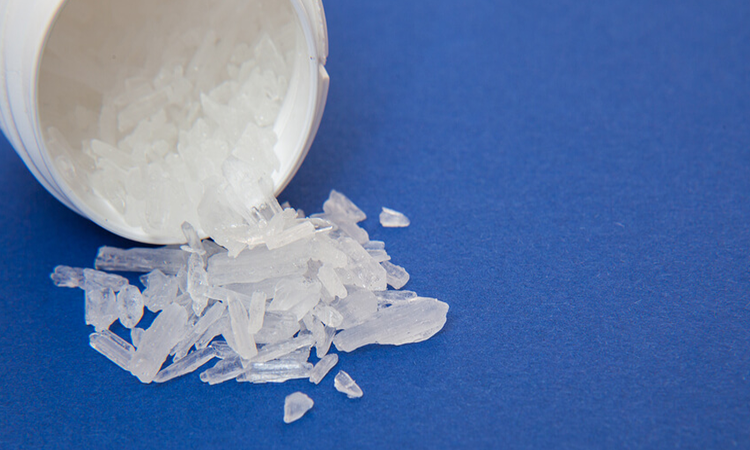
Signs of Meth Overdose – Methamphetamine (meth) is classified by the DEA as a Schedule II stimulant drug that typically takes the form of a white powder, a crystalline form (crystal meth), and sometimes a pill (as the prescription medication Desoxyn). Although small doses of meth can help to treat conditions like particularly stubborn cases of ADHD, obesity, or narcolepsy, the National Institute on Drug Abuse (NIDA) states unequivocally that the drug can be highly addictive when abused.
If a person is experiencing a meth addiction, they may encounter dangerous and even life-threatening effects related to frequent use or excessively high doses. Indeed, the United Nations Office on Drugs and Crime (UNODC) found that meth-related seizures saw an astonishing 21% increase from 2013-2014.
While there is a myriad of health risks that have been linked to meth use including memory loss, mood disorders, aggression and violence, dental deterioration, and brain damage, overdose is perhaps the most severe consequence of abusing the drug.
What Causes an Overdose?
An overdose occurs when a person uses (either by accident or intentionally) and experiences adverse effects as the stimulant interacts with the body. The effects are usually the result of a dose higher than the body can handle, and if left untreated, an overdose can be fatal.
The majority of meth-related deaths occur when the body develops heatstroke, a condition that ultimately leads to multiple organ failure. An overdose of meth can also cause a sharp spike in blood pressure that results in liver failure and hemorrhaging. In some rare instances, lead poisoning can occur due to adulterants that find their way into the drug during the manufacturing process.
Warning Signs of Meth Overdose
Whenever people use excessive amounts of meth, they face the risk of overdose. Because meth is usually found on the black market as an illegal, unregulated substance, individuals are often unaware of the drug’s strength, purity, or presence of any toxic ingredients used to make the product. If someone you know suffers from meth abuse, becoming familiar with the signs of an overdose could save their life.
Common symptoms of a meth overdose include the following:
- Chest pain
- Heart arrhythmia
- High blood pressure
- Low blood pressure
- Difficult or labored breathing
- Agitation and irritation
- Psychosis
- Hallucinations
- Delusions
- Seizures
- Accelerated or slow heartbeat
- High body temperature
If a person experiences a meth overdose, the odds they will recover depend on how much of the drug they consumed and how swiftly they receive treatment. Surviving a meth overdose is certainly possible, but it is critical that the person who is overdosing receives emergency medical attention immediately. Because a meth overdose is a clear indication of a substance use disorder, professional addiction treatment should follow once the person is in stable conditions.
What You Can Do
If you suspect that someone is experiencing a meth overdose, it is vitally important that they receive help as soon as possible. Call 911 immediately if signs of an overdose are evident, and then take actions to keep the person safe until emergency help arrives.
Important: If someone is experiencing a seizure, carefully hold the person’s head to prevent injury and turn their head to one side to stop them from choking if they vomit. Do not, however, attempt to secure their arms or legs.
When you call 911, have the following information ready:
- The person’s approximate age and weight
- The amount of the drug that was used
- How the drug was administered (e.g., snorting, injecting, etc.)
- Length of time since the person last used the drug
Once emergency personnel arrives, they will be able to provide vital medical care. First responders or emergency personnel will likely administer activated charcoal orally to detoxify the body, conduct a poison and drug screening, and provide intravenous fluids to mitigate side effects such as extreme nausea and high blood pressure.
Other medications may also be administered to treat certain complications related to the overdose, such as impaired kidney function or heart problems. The overdosing individual has the best chances of recovery if the meth overdose is met with swift and competent medical attention.
Treatment for Meth Addiction
Meth addiction is a devastating condition that adversely affects the health and emotional well-being of those suffering, as well as profoundly impacting the lives of those around them.
Fortunately, meth addiction is very treatable, and through the use of a comprehensive approach to substance abuse, former meth users can achieve abstinence, prevent relapse, and restore mental and physical wellness to their lives. Recovery in Tune offers professional addiction treatment including clinically proven, evidence-based services vital to the recovery process, such as psychotherapy, individual counseling, group therapy, holistic treatment, and aftercare planning.
If you or someone you love has developed an addiction to meth, please contact us as soon as possible to discuss treatment options. We can help you recover from your addiction and reclaim the joyful and fulfilling life you deserve!
Related: How Does Meth Affect the Brain?